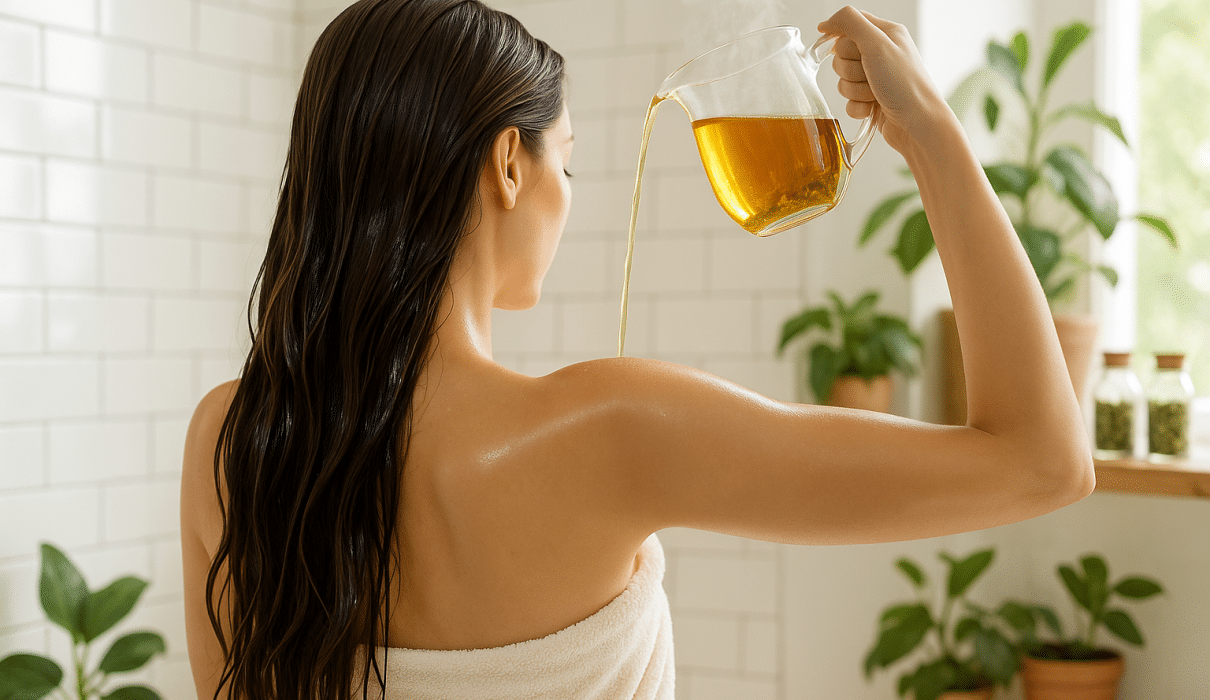Herbal hair rinse recipes have been transforming hair health for centuries, offering a natural and sustainable approach to achieving stronger, shinier locks. If you’re tired of chemical-laden hair products that promise the world but deliver disappointing results, these time-tested herbal hair rinse recipes will revolutionize your hair care routine while aligning with your eco-conscious values.
In our modern world of synthetic hair treatments, we’ve somehow forgotten the incredible power that lies within nature’s pharmacy. These herbal hair rinse recipes aren’t just trendy alternatives—they’re scientifically-backed solutions that have been proven to nourish hair follicles, balance scalp pH, and deliver the kind of natural shine that no commercial product can replicate.
The beauty of herbal hair rinse recipes lies in their simplicity and effectiveness. These natural treatments have been used across cultures for thousands of years, from ancient Egyptian beauty rituals to traditional Ayurvedic practices. Today’s herbal hair rinse recipes combine this ancestral wisdom with modern understanding of plant chemistry and hair science.
When you create herbal hair rinse recipes at home, you’re harnessing the concentrated power of botanicals in their most bioavailable form. Fresh or dried herbs release their beneficial compounds when steeped in hot water, creating potent solutions that can address specific hair concerns naturally and effectively.
The process of making herbal hair rinse recipes is surprisingly straightforward, requiring nothing more than quality herbs, filtered water, and a bit of patience. What makes these treatments so special is their ability to work with your hair’s natural structure rather than against it, promoting long-term health instead of providing temporary cosmetic fixes.
Herbal hair rinses are liquid preparations made by steeping various herbs in hot water, creating nutrient-rich infusions that can be applied to hair after shampooing. Unlike conventional conditioners that coat the hair shaft with synthetic substances, herbal hair rinse recipes work by delivering vitamins, minerals, and plant compounds directly to your hair and scalp.
Rose water and vegetable glycerin are often added to herbal hair rinse recipes for extra moisture and fragrance, enhancing the conditioning effects naturally.

